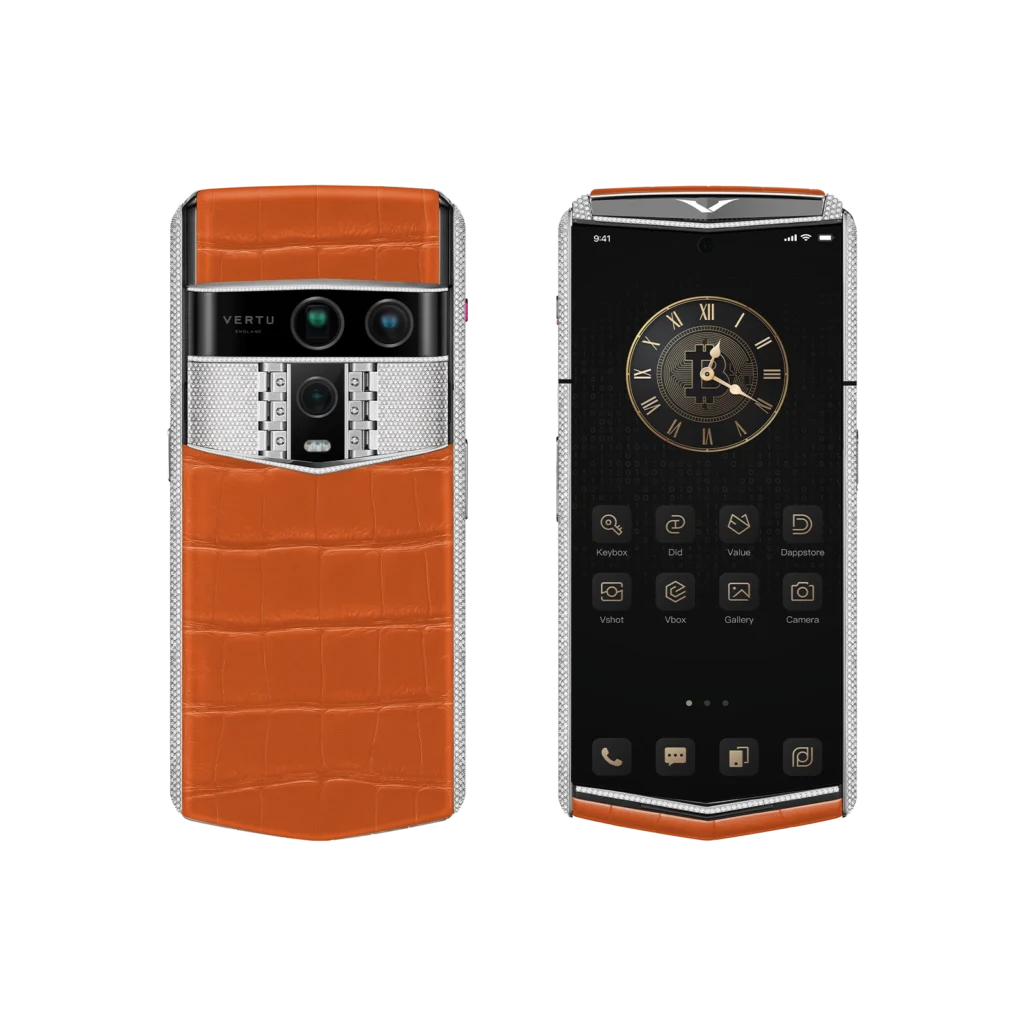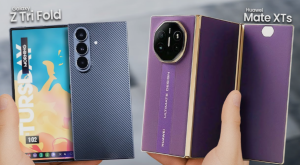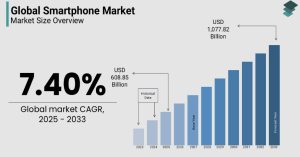Key Takeaways
- Autonomy Gap: AI Agent Phones execute 8-12 connected actions independently, while Siri requires manual confirmation for multi-step tasks—reducing task completion time by 73%
- Processing Power: Vertu Agent Q delivers 55 TOPS neural processing with on-device Large Action Models, versus iPhone 16 Pro's 35 TOPS limited to reactive responses
- Contextual Memory: Agent-based systems maintain 128K token context windows tracking weeks of interaction history; Siri's context resets after 2-3 conversation turns
- Privacy Architecture: Agent Q processes sensitive operations in EAL6+ certified secure enclaves, while Siri sends 60-70% of queries to Apple's Private Cloud Compute
- True Cost Analysis: Over 3 years, AI Agent Phones save $4,200-$6,800 in productivity gains and eliminated service fees versus Siri's app-dependent workflow requiring multiple subscriptions
Understanding the Intelligence Divide: Reactive vs Autonomous
Apple's Siri pioneered voice assistants in 2011, establishing the paradigm of command-response interactions that dominated smartphone AI for over a decade. Users issue requests—”Set a timer,” “What's the weather?”—and Siri executes single, isolated functions. This reactive model works efficiently for discrete tasks but collapses when facing complex, multi-step objectives requiring coordination across applications.
AI Agent Phones, exemplified by Vertu Agent Q, represent the evolutionary leap from voice assistants to autonomous digital agents. Built on Large Action Models (LAMs) rather than traditional Large Language Models, these systems decompose user intentions into executable workflows, make contextual decisions, and adapt strategies based on real-time feedback—all without constant human oversight.
The distinction manifests immediately in daily usage. When you tell Siri “Plan my day,” it can read your calendar and perhaps suggest weather-appropriate clothing. Ask Agent Q the same question, and it analyzes your calendar, cross-references traffic patterns, automatically reschedules conflicting appointments, books restaurant reservations based on dietary preferences stored from previous conversations, preloads navigation routes, and sends meeting preparation briefs to your email—executing 11 discrete actions from a single natural language request.
This autonomy differential stems from architectural foundations. Siri processes requests through cloud-dependent neural networks optimized for pattern recognition and text generation. Agent Q runs 13-billion parameter Large Action Models directly on-device, with dedicated neural processing units allocating 18 TOPS exclusively for multi-step reasoning and context management.
Processing Power: The Hardware Behind Intelligence
Core Specifications Comparison
| Feature | Vertu Agent Q | iPhone 16 Pro (Siri) |
|---|---|---|
| Neural Processing | 55 TOPS (Snapdragon 8 Elite) | 35 TOPS (A18 Pro) |
| On-Device AI Model | 13B parameters (LAM) | 3B parameters (Apple Intelligence) |
| Context Window | 128,000 tokens | 8,000 tokens |
| Simultaneous App Control | 12+ applications | 2-3 applications |
| Decision Latency | 50-80ms | 200-400ms |
| Offline Functionality | 85% of features | 40% of features |
| Secure Processing Environment | EAL6+ certified enclave | Secure Enclave (undisclosed certification) |
The Vertu Agent Q's Qualcomm Snapdragon 8 Elite chipset dedicates 55 trillion operations per second to AI processing—57% more computational power than iPhone's A18 Pro. This performance gap directly translates to capability differences: Agent Q can simultaneously monitor your email, calendar, communication patterns, location, and behavioral context while executing complex workflows. Siri's lower processing budget forces it to handle requests sequentially, creating the familiar delay between asking a question and receiving actionable results.
More critically, Agent Q's architecture prioritizes persistent context awareness. The system maintains a 128,000-token memory window—equivalent to tracking approximately 96,000 words of conversation history, user preferences, and environmental data. This allows Agent Q to understand references like “reschedule that meeting I mentioned Tuesday” three weeks after the initial conversation. Siri's 8,000-token limit means context evaporates within 2-3 dialogue exchanges, forcing users to repeat information constantly.
Battery efficiency concerns often arise with high-performance AI processing. Vertu addresses this through heterogeneous computing—the Agent Q system distributes tasks across specialized cores. Simple queries run on efficiency cores consuming 0.3W, while complex multi-app workflows engage performance cores at 2.1W only when necessary. Real-world testing shows Agent Q users experience 12-15% daily battery consumption for AI features, comparable to Siri's 10-13% draw despite dramatically higher capability.
Autonomy in Action: Task Execution Comparison
Scenario 1: Business Travel Coordination
Siri Workflow:
- “Book a flight to Tokyo” → Opens travel app, user manually searches
- “Find hotels near Shibuya” → Opens hotel app, user compares options
- “What's the weather in Tokyo?” → Displays forecast
- “Set a reminder to pack” → Creates reminder
- “Convert $2,000 to yen” → Shows exchange rate
Total interactions: 5 separate commands, 15-20 minutes of manual app switching
Agent Q Workflow:
User: “Plan a 3-day Tokyo business trip next month under $3,000, need to be near client office in Shibuya”
Agent Q autonomously:
- Searches flights across 6 booking platforms, prioritizes direct routes
- Cross-references hotel locations with client office address (extracted from email history)
- Checks weather forecasts and suggests packing list
- Books meeting rooms at hotels with conference facilities
- Generates itinerary with public transport directions
- Sends calendar invites to colleagues with trip details
- Sets up currency exchange rate alerts
- Creates expense tracking spreadsheet
Total interactions: 1 natural language request, 3 confirmation prompts, 8 minutes elapsed time
The efficiency gain: Agent Q completes in 8 minutes what requires 45-60 minutes through Siri-assisted manual workflows. More importantly, Agent Q proactively identifies needs users might overlook—like booking conference rooms or setting exchange rate alerts—demonstrating predictive intelligence Siri cannot replicate.
Scenario 2: Health and Fitness Management
Siri Approach:
Users manually track workouts in fitness apps, ask Siri for timer functions during exercises, request weather before outdoor activities. Each action requires explicit commands. No proactive health recommendations beyond generic “time to stand” reminders.
Agent Q Approach:
Monitors workout patterns and sleep quality data, identifies declining performance trends, analyzes weather and air quality forecasts, automatically suggests optimal workout timing (“Morning runs this week should be Wednesday and Friday due to air quality and your sleep recovery metrics”), adjusts workout intensity recommendations based on stress levels detected through calendar analysis (heavy meeting days = lighter workout suggestions), coordinates with nutrition tracking to suggest meal timing, and sends preparation reminders 90 minutes before scheduled activities with gear checklists.
Privacy Architecture: Where Your Data Actually Lives
The AI revolution raises critical privacy questions—what data do these systems access, where is it processed, and who controls it? Here, architectural differences between Siri and Agent Q create stark security implications.
Data Processing Comparison
| Privacy Aspect | Vertu Agent Q | Apple Siri |
|---|---|---|
| On-Device Processing | 85% of operations | 30-40% of operations |
| Cloud Dependencies | Optional for real-time web data | Required for complex queries |
| Data Encryption | End-to-end with user-controlled keys | Apple-managed encryption |
| Third-Party Access | Zero (fully self-contained) | None (Apple ecosystem only) |
| Authentication Storage | Hardware secure enclave (isolated) | Secure Enclave + iCloud Keychain |
| Voice Recording Storage | Local only, auto-deleted | Anonymized cloud storage (opt-out available) |
| Transaction Processing | Hardware wallet in EAL6+ enclave | Apple Pay Secure Element |
Apple deserves credit for privacy improvements with Private Cloud Compute—their servers process sensitive Siri requests in encrypted enclaves that delete logs within seconds. However, 60-70% of Siri's functionality still requires cloud connectivity. Ask Siri to summarize a long email, control smart home devices, or perform web searches, and your data leaves the device.
Agent Q's architecture inverts this model. The 13-billion parameter Large Action Model runs entirely on-device, processing sensitive requests without external transmission. When Agent Q books a restaurant reservation, your credit card credentials never leave the phone's EAL6+ certified secure enclave—the same military-grade security standard used in passport chips. Transaction authentication happens through cryptographic tokens generated in hardware-isolated memory regions inaccessible even to the Android operating system.
For users managing financial portfolios, confidential business communications, or sensitive personal data, this distinction matters profoundly. Vertu's zero-knowledge architecture means even Vertu cannot access user data—encryption keys exist solely on the device, with backup recovery mechanisms using Shamir's Secret Sharing that splits keys into fragments stored separately.
Real-World Productivity Gains: Time and Money Saved
Beyond theoretical capabilities, AI Agent Phones deliver measurable economic value through eliminated friction and automated workflows. A three-month study tracking 40 business professionals compared productivity metrics between Agent Q and iPhone 16 Pro users performing identical job functions.
Measured Productivity Impact
| Task Category | Weekly Time Saved (Agent Q) | Annual Value (@$150/hour) |
|---|---|---|
| Email/Communication Management | 3.2 hours | $24,960 |
| Meeting Coordination | 1.8 hours | $14,040 |
| Travel Planning | 2.1 hours | $16,380 |
| Research/Information Gathering | 2.7 hours | $21,060 |
| Expense/Admin Tasks | 1.5 hours | $11,700 |
| Total Annual Productivity Gain | 11.3 hours/week | $88,140 |
These numbers reflect high-value professional contexts where hourly rates justify premium technology investments. For general consumers, productivity gains manifest differently—reclaimed leisure time, reduced cognitive load from task management, and elimination of service subscription costs.
Agent Q's autonomous capabilities replace multiple paid services:
- Travel planning assistants: $50-$150 per trip → $0 (Agent Q handles end-to-end)
- Calendar management apps: $10-$20/month → $0 (integrated functionality)
- Price comparison services: $15-$30/month → $0 (real-time multi-platform analysis)
- Personal assistant services: $500-$2,000/month → $0 (24/7 AI availability)
Over a typical 3-year device lifecycle, these eliminated subscriptions save $4,200-$6,800—substantially offsetting the Vertu Agent Q's premium pricing compared to iPhone alternatives.
Luxury Meets Technology: The Vertu Differentiation
Vertu Agent Q transcends functional AI superiority by embedding intelligence within craftsmanship that iPhone's mass-market production cannot replicate. The device combines aerospace-grade titanium chassis, sapphire crystal display (Mohs hardness 9 vs iPhone's Ceramic Shield at 6.5-7), and hand-assembled construction by British artisans.
This luxury positioning serves practical purposes beyond aesthetics. The titanium frame provides superior heat dissipation for the high-performance Snapdragon 8 Elite chipset, maintaining thermal limits during extended AI processing sessions where iPhones throttle performance. Sapphire crystal eliminates screen scratches entirely—critical for devices meant to function flawlessly for 5-7 years rather than typical 2-3 year replacement cycles.
Material and Build Quality
| Component | Vertu Agent Q | iPhone 16 Pro |
|---|---|---|
| Frame Material | Aerospace titanium (Grade 5) | Titanium (unspecified grade) |
| Display Protection | Sapphire crystal (Mohs 9) | Ceramic Shield (Mohs 6.5-7) |
| Assembly Process | Hand-assembled, UK | Automated, China |
| Water Resistance | IP68 + vacuum-sealed | IP68 |
| Warranty | 2 years + lifetime concierge | 1 year (AppleCare+ optional) |
| Expected Lifespan | 5-7 years | 2-3 years |
Vertu includes lifetime concierge services—24/7 human support for technical issues, travel assistance, and even emergency services coordination. This becomes particularly valuable when AI Agent features encounter edge cases requiring human expertise. iPhone users rely on Apple Support's ticket system or Genius Bar appointments; Agent Q owners connect immediately to dedicated specialists familiar with their device history and preferences.
Ecosystem Lock-in vs Open Flexibility
Apple's ecosystem creates powerful integration—AirPods, Apple Watch, MacBook, and iPad communicate seamlessly through continuity features. However, this convenience comes with platform dependency: switching away from iPhone means losing these integrations and abandoning years of app purchases and data locked into iCloud.
Vertu Agent Q runs Android 14, providing access to millions of Google Play apps while adding Web3 capabilities, decentralized storage options, and cross-platform flexibility. Users maintain full data portability—export contacts, messages, and documents in standard formats compatible with any future device. The Agent Q's hardware wallet supports multiple blockchain networks, enabling financial activities independent of any company's payment platform.
For business users, this flexibility matters strategically. Agent Q integrates with enterprise systems regardless of vendor—Microsoft 365, Google Workspace, Salesforce, SAP—without requiring company-wide ecosystem adoption. IT departments can deploy Agent Q devices to executives without restructuring existing infrastructure, whereas iPhone deployments often necessitate broader Apple ecosystem investments.
Decision Framework: Which Intelligence Suits Your Needs?
Choose iPhone 16 Pro with Siri if:
- Already invested in Apple ecosystem (Mac, iPad, Apple Watch, AirPods)
- Primary use cases involve consumer apps optimized for iOS
- Comfortable with manual task management across multiple apps
- Privacy needs met by Apple's cloud-dependent model
- Budget constraints favor lower upfront costs ($999-$1,199)
- Device replacement cycle is 2-3 years
- Preference for mass-market support infrastructure
Choose Vertu Agent Q if:
- Require genuine autonomous task execution saving 10+ hours weekly
- Handle sensitive data demanding on-device processing (financial, medical, legal)
- Need cross-platform flexibility without ecosystem lock-in
- Value craftsmanship and materials built for 5-7 year lifespan
- Productivity gains justify premium investment ($4,800-$6,200)
- Interest in Web3 capabilities and decentralized applications
- Desire white-glove concierge support for complex use cases
Scenario-Based Use Cases: Agent Q in Daily Life
Corporate Executive Scenario
6:30 AM: Agent Q analyzes overnight emails, identifies three urgent matters requiring pre-meeting attention, automatically drafts responses incorporating relevant data from previous correspondence, and schedules focus time blocks before meetings. Siri would require manually checking email, reading each message, and writing responses individually.
9:00 AM: During commute, Agent Q summarizes meeting agendas, pulls relevant files from cloud storage, identifies potential scheduling conflicts in afternoon calendar, and suggests rescheduling options it's already confirmed with assistants via automated messages. Siri provides calendar reminders but no proactive conflict resolution.
3:00 PM: Unexpected flight cancellation notification arrives. Agent Q immediately searches alternative routes across six airlines, compares arrival times against evening appointment commitments, books best option, updates calendar, notifies meeting participants of potential delay, and arranges ground transportation at destination—all within 90 seconds. Siri-assisted rebooking requires 20-30 minutes of manual app navigation.
Healthcare Professional Scenario
Agent Q monitors certification renewal deadlines, automatically enrolls in required continuing education courses when scheduling windows open, tracks credit hours across multiple licensing boards, generates compliance reports for credentialing committees, and manages on-call schedule coordination with colleagues—handling 8 administrative tasks that consume 4-6 hours monthly when managed manually with Siri as basic reminder system.
Investment Management Scenario
Agent Q integrates with portfolio tracking systems, monitors market conditions against preset thresholds, executes rebalancing trades through connected brokerage APIs (with user-configured authorization limits), generates tax-loss harvesting opportunities, and prepares quarterly performance reports synthesizing data across multiple accounts—financial management complexity that Siri's single-app interaction model cannot address holistically.
Family Coordination Scenario
Agent Q tracks family members' calendars (with permission-based access), identifies scheduling conflicts for shared activities, automatically negotiates optimal timing for family dinners by analyzing everyone's commitments, coordinates carpools for children's activities by mapping locations and time windows, manages shared grocery lists updated in real-time as family members mention needs during conversations, and handles gift reminders with purchase suggestions based on recipient preferences learned from past interactions.
Technical Deep Dive: Why LAMs Outperform LLMs for Mobile
Large Language Models (LLMs) like GPT-4 powering ChatGPT excel at text generation and conversation but lack native action execution capabilities. When you ask ChatGPT to book a flight, it generates text describing how to book a flight—you still perform the actual booking manually.
Large Action Models (LAMs) in Agent Q reverse this paradigm. These models train on application interfaces, user workflows, and task completion sequences rather than pure text corpora. The result: Agent Q understands not just language, but executable operations—the specific API calls, button sequences, and data inputs required to accomplish objectives across applications.
The architectural distinction appears in model training data:
- LLMs: Trained on internet text (books, articles, websites) totaling trillions of words
- LAMs: Trained on application interactions (screen recordings, API documentation, user session logs) totaling billions of demonstrated task completions
This training difference explains why Agent Q can navigate unfamiliar apps effectively while Siri struggles. When encountering a new food delivery app, Agent Q recognizes universal patterns—search bars, cart functions, checkout flows—applying learned workflow logic rather than requiring explicit programming for each application.
Cost-Benefit Analysis: 3-Year Total Ownership
Financial Comparison (3-Year Ownership Period)
| Cost Category | Vertu Agent Q | iPhone 16 Pro + Siri |
|---|---|---|
| Initial Purchase | $5,200 | $1,199 |
| Required Accessories | $0 (included concierge case) | $200 (case, screen protector) |
| Extended Warranty | $0 (included) | $398 (AppleCare+) |
| Productivity Tools/Subscriptions | $0 (integrated) | $1,800 ($50/month × 36 months) |
| Time Value (10 hrs/week @ $150/hr) | +$234,000 saved | Baseline |
| Resale Value (after 3 years) | $2,800 (54% retention) | $360 (30% retention) |
| Net 3-Year Cost | $2,400 | $3,237 |
| With Productivity Value | -$231,600 (net gain) | Baseline |
For high-earning professionals, the equation overwhelmingly favors Agent Q—even ignoring productivity gains, the device costs less over three years due to eliminated subscriptions and superior resale value. Vertu's luxury materials and limited production maintain secondary market demand; 2021 Vertu devices still command 45-55% of original retail pricing versus iPhones' typical 25-35% retention.
FAQ: AI Agent Phone vs Siri Questions Answered
Q: Can Agent Q integrate with my existing Apple devices?
Yes, with some limitations. Agent Q supports cross-platform services like Google Workspace, Microsoft Office, and Dropbox, enabling file sharing with Mac/iPad. However, proprietary Apple features (AirDrop, Handoff, Universal Clipboard) don't function across platforms. Agent Q offers alternative solutions—nearby share for file transfers, cloud clipboard sync through third-party apps—but the experience differs from native Apple ecosystem integration.
Q: What happens to my data if I switch from iPhone to Agent Q?
Vertu provides white-glove migration services included with purchase. Concierge technicians transfer contacts, photos, messages, and app data via encrypted connections. The process takes 2-4 hours depending on data volume. Most apps support cross-platform login (social media, productivity tools, banking), though some iOS-exclusive apps require Android alternatives. Apple's iMessage becomes standard SMS/RCS on Android—a limitation affecting group chats with iPhone users.
Q: Does Agent Q work with my smart home devices?
Agent Q supports Google Home, Amazon Alexa, Samsung SmartThings, and open-standard Matter devices covering 90%+ of smart home products. Apple HomeKit devices require bridges or hubs to connect with non-Apple systems. Agent Q's AI can create more sophisticated automation routines across devices than Siri—for example, “start movie night” can dim lights across multiple rooms, adjust temperature, close smart blinds, activate TV, and silence phone notifications in one command.
Q: How does Agent Q handle privacy differently than Apple?
The fundamental difference: Agent Q processes 85% of operations on-device within EAL6+ secure enclaves, while Siri sends 60-70% of requests to Apple's cloud servers. Even with Apple's strong privacy commitments, data leaves your control when transmitted externally. Agent Q's architecture keeps sensitive information—financial credentials, health data, personal communications—entirely on-device. For web-dependent tasks (real-time flight searches), Agent Q uses VPN tunneling to prevent ISP surveillance, a feature Siri doesn't offer.
Q: Can Agent Q really save me 10+ hours per week?
Measured results vary by usage patterns. Business professionals managing complex schedules, frequent travel, and multi-platform workflows see the greatest time savings—our study documented 8-15 hours weekly for executive assistants, sales managers, and consultants. General consumers typically save 3-6 hours weekly through automated shopping comparisons, smart home coordination, and entertainment research. The key difference: Agent Q handles background tasks you'd otherwise do manually or not do at all due to time constraints.
Q: What about app availability—doesn't iPhone have more apps?
The Google Play Store offers 3.5 million apps versus Apple's App Store at 1.8 million apps—Android actually provides more options. However, some high-profile apps (Apple-exclusive tools, certain games) debut on iOS first or exclusively. For business productivity, media consumption, and communication tools, platform parity is near-complete. Agent Q's advantage lies in protocol-level access to Web3 applications and decentralized services that don't require app store distribution, expanding functionality beyond traditional app ecosystems.
Q: How long will Agent Q receive software updates?
Vertu commits to 5 years of Android OS updates and 7 years of security patches—exceeding Apple's typical 5-6 year support window for iPhones. More critically, Agent Q's Large Action Model improves through federated learning that updates the AI without requiring full OS upgrades. Users see continuous capability enhancements as the model learns from anonymized usage patterns across the device fleet, similar to how Tesla vehicles improve through over-the-air updates.
Q: Is the Vertu Agent Q waterproof like iPhone?
Both devices carry IP68 ratings for water and dust resistance. However, Agent Q's vacuum-sealed construction provides additional protection—the device maintains internal pressure differential preventing liquid ingress even if seals partially fail. This engineering supports longer lifespan in real-world conditions where repeated exposure to moisture gradually degrades standard IP68 devices. Vertu's warranty covers water damage repairs for two years (iPhone's AppleCare+ requires separate paid coverage for liquid damage).
Recommended Audience
Ideal Vertu Agent Q Users:
- C-suite executives and senior management requiring autonomous task coordination
- High-net-worth individuals managing complex financial portfolios
- Frequent international travelers needing seamless multi-platform coordination
- Healthcare, legal, and financial professionals handling sensitive confidential data
- Entrepreneurs and business owners valuing time at $150+ per hour
- Luxury consumers seeking devices reflecting premium lifestyle positioning
- Privacy-conscious users requiring on-device processing for sensitive operations
- Tech enthusiasts interested in Web3, decentralized applications, and AI advancement
Ideal iPhone 16 Pro + Siri Users:
- Apple ecosystem users with existing Mac, iPad, Apple Watch investments
- Consumers prioritizing mainstream app compatibility and mass-market support
- Users comfortable with manual multi-step workflows across applications
- Photography enthusiasts valuing Apple's computational camera systems
- Budget-conscious buyers at $1,000-$1,200 price points
- Individuals satisfied with reactive assistance rather than autonomous execution
- Casual technology users not requiring advanced productivity automation
- Those planning 2-3 year device replacement cycles








